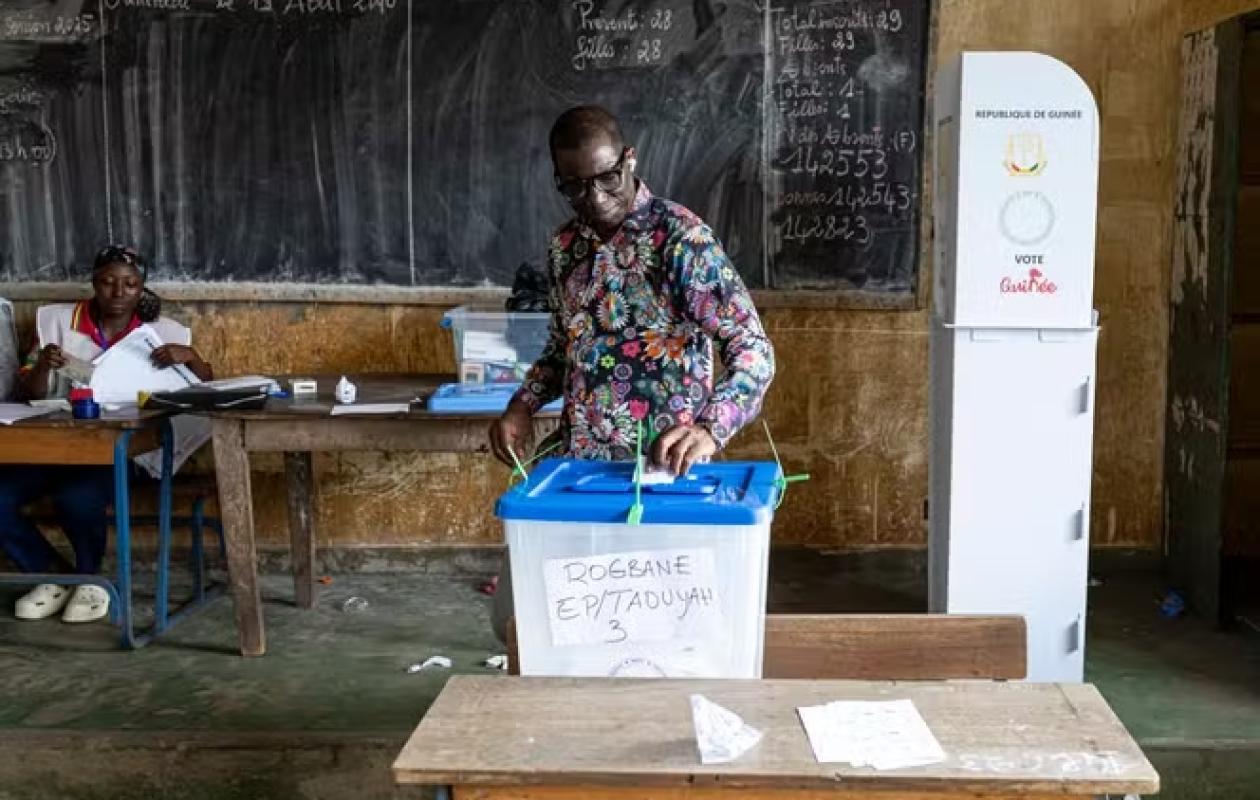
Guinée : le "oui" à la nouvelle Constitution visant à la fin de la transition largement approuvée
On Wednesday, September 24, the "yes" vote for the new Constitution in Guinea won by 89.38%, according to official provisional results announced Tuesday evening by Ibrahima Kalil Condé, Minister of Territorial Administration and Decentralization. The turnout was 86.42%.
Expected for years by the population and the international community, this election inaugurated a crucial electoral sequence in this country, one of the poorest in the world and with a history marked by coups d'état and the violence of authoritarian regimes. This vote aims to end the transition but paves the way for a candidacy of the head of state and the army, Mamadi Doumbouya, in a future presidential election.
Some 6.7 million Guineans were called to vote out of a population of around 14.5 million.
The "yes" vote to the new Constitution won with 89.38% and the "no" vote with 10.62%, according to the official provisional results announced Tuesday, September 23, by Ibrahima Kalil Condé, Minister of Territorial Administration and Decentralization, who indicated a turnout of 86.42%. The minister considered that the referendum had taken place "in a peaceful and highly secure atmosphere."
The opposition called for a boycott
He affirmed the government's commitment "to working towards a transparent, credible electoral process that is consistent with the democratic principles of our Republic." The final results will be announced by the Supreme Court on an unspecified date.
Accusing the authorities of wanting to stay in power through this referendum, opposition leaders called for a boycott, denouncing an "electoral farce" with "predetermined" results.
But despite this call, many Guineans went to the polls. Voters interviewed by AFP said the majority had voted to express their desire to end the military transition. The military had initially pledged to return power to civilians before the end of 2024.
Since overthrowing elected civilian President Alpha Condé in 2021, 40-year-old Mamadi Doumbouya has ruled the country with an iron fist. He has increased restrictions on freedoms.
Presidential and legislative elections announced
The organization of the referendum allows the military authorities to deflect the election demands of the international community and donors. The authorities wish to "normalize" and reconnect with regional and international organizations.
They therefore announced presidential and legislative elections to ensure a return to constitutional order before the end of this year. However, no date has been given.
This Constitution replaces the "Transition Charter," established by the authorities after the coup d'état, which notably prohibited its members from running for office. However, this prohibition no longer appears in the new Constitution, paving the way for Mamadi Doumbouya to run.
Everything seems to indicate that Mamadi Doumbouya will be a candidate, despite his promise not to run for president.
Commentaires (1)
Participer à la Discussion
Règles de la communauté :
💡 Astuce : Utilisez des emojis depuis votre téléphone ou le module emoji ci-dessous. Cliquez sur GIF pour ajouter un GIF animé. Collez un lien X/Twitter, TikTok ou Instagram pour l'afficher automatiquement.